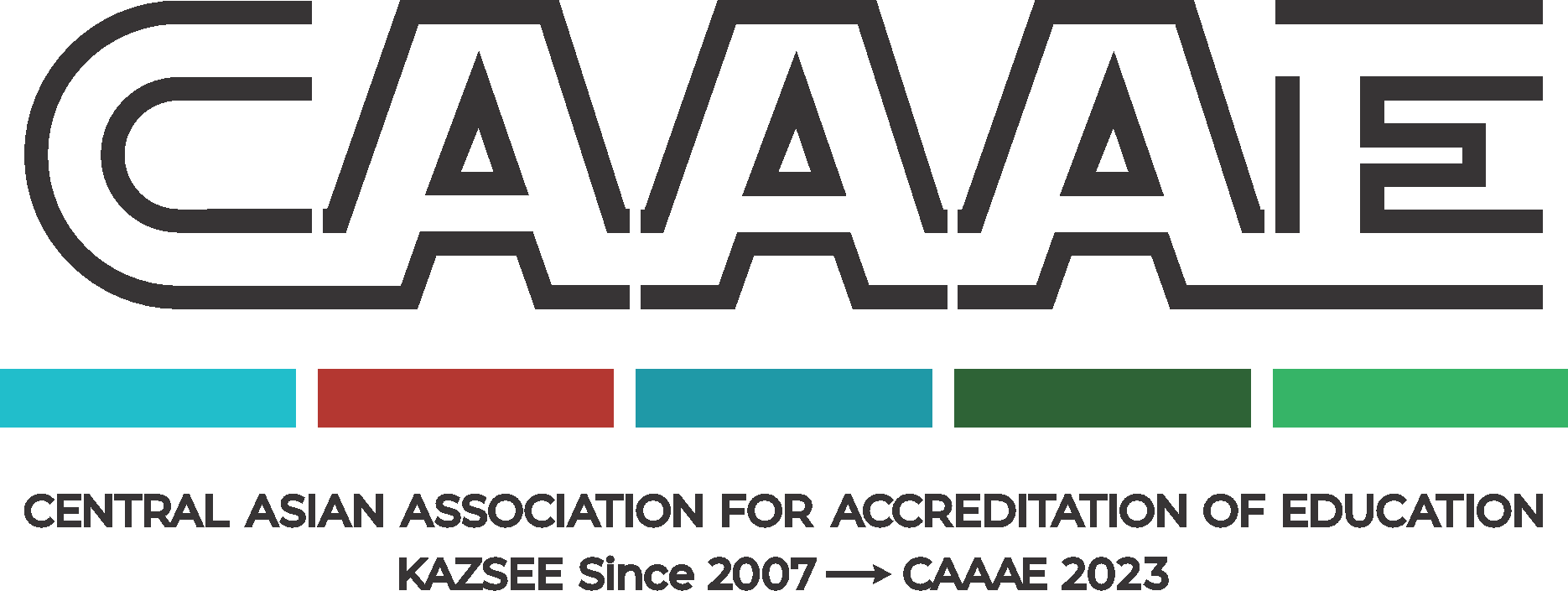The institutional and specialized accreditation procedure has been developed by the agency in accordance with European and international standards, which includes the following stages:
Stage I
- submission by the educational organization of an application for accreditation to the agency with a brief description of the university’s activities and copies of the general license and licenses for educational programs;
- signing of an accreditation agreement between KAZSEE and the educational organization. The agreement specifies the rights and obligations of the parties, the cost of the procedure, the timing of accreditation, including the levels of;
- appointment of a coordinator, preliminary visit to the university at the request of the university, if the agency is unfamiliar with it. Conducting seminars for university working groups on preparing a self-assessment report and conducting the accreditation procedure;
- conducting a self-assessment procedure by the educational institution, compiling a self-assessment report in accordance with KAZSEE standards and criteria;
- Submission of the first version of the self-assessment report and examination by independent experts determined by the relevant KAZSEE accreditation committee. The results of the examination are sent to the university, if necessary, the self-assessment report is finalized by the university;
- Submission of the final self-assessment report and its appendices to the agency.
Stage II
- KAZSEE forms a competent group of experts, which includes representatives of educational institutions in Kazakhstan, an employer, a student and an international expert. The group is formed in parallel during the examination of the self-assessment report;
- The agency informs the university about the composition of the external audit group. If the university suspects a conflict of interest among any of the auditors, the university has the right to contact the agency to replace the expert, attaching a written explanation;
- The coordinator sends self-assessment materials and methodological support several weeks in advance to the members of the expert group to prepare for the external audit;
- The coordinator conducts a preliminary webinar for the expert group in order to train experts and discuss organizational audit issues, and a briefing before the start of the visit to the university;
- External audit at the university lasts 3 days for institutional accreditation, 2 days for specialized accreditation. An external audit is conducted in order to assess the reliability of the information provided in the self-assessment report, the actual state of affairs in the educational organization;
- The expert group generates an external evaluation report (indicating comments, recommendations for improvement, etc.) which is sent to the coordinator;
- The KAZSEE coordinator sends the received report of the expert group on the evaluation of the university’s activities to the educational organization in order to eliminate inaccuracies, if any.
Stage III
- Based on the self-assessment report and the external audit report, the agency coordinator prepares an opinion, which is coordinated with the accreditation committee, and a presentation to the accreditation council;
- Holding a meeting of the KAZSEE Accreditation Council and making a decision on the accreditation of an institutional/specialized program. The Accreditation Council independently makes decisions based on the self-assessment report and the external audit report, presentation and conclusion;
- Informing the university and the members of the expert group that conducted the external audit about the decision on accreditation;
- Publication of the external audit report, presentation and results of accreditation on the website of the KAZSEE and ENAEE agencies (in case of issuing a EUR-ACE Label);
- Sending information to the Ministry of Education and Science of the Republic of Kazakhstan for inclusion of an accredited institutional/specialized program in the relevant National Register
